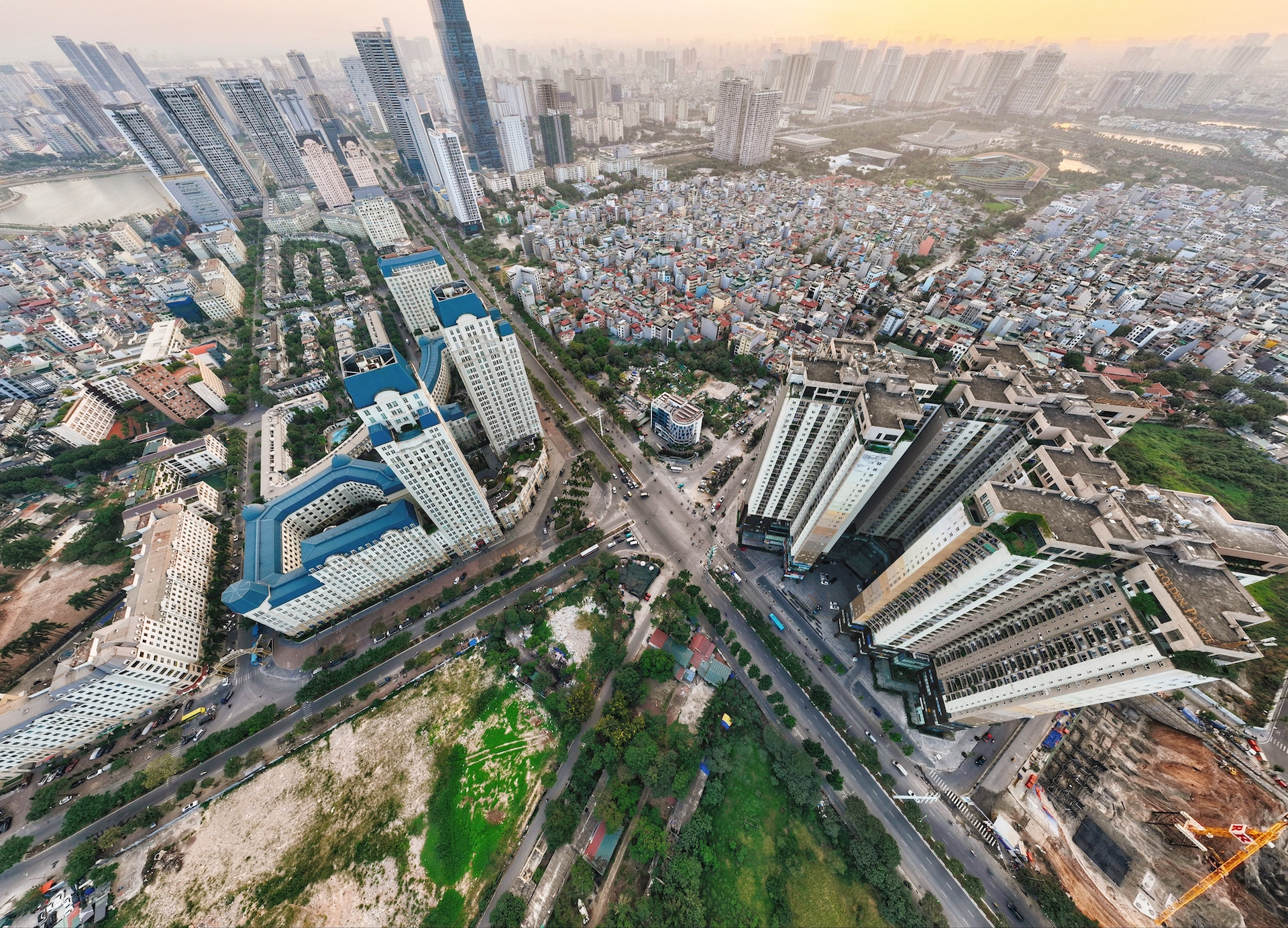Gaining legal access to land remains one of the most daunting challenges for Vietnamese businesses. A 2024 survey reveals that nearly 74% of enterprises were forced to postpone or cancel their business plans due to complex administrative land procedures.
The leather entrepreneur’s stalled dream

We recently met with a weary-looking businessman who has been pursuing a large-scale leather manufacturing project in his northern hometown since before the COVID-19 pandemic. Despite securing land and investment permits, the project remains paralyzed.
“I completed all preparations and was waiting to break ground,” he said. “But everything halted because the land lies outside an industrial zone. We’re no longer allowed to build.”
His story is far from unique. Many small and medium-sized enterprises (SMEs), particularly in craft villages, face similar setbacks.
A wood workshop owner in a Hanoi district lost his factory after it was deemed in violation of zoning rules. Years of investment disappeared overnight. Today, the once-bustling workshop zone is an empty lot, while he remains without a legal place to operate.
Over the past few years, numerous craft workshops have been shut down across Vietnam due to tighter regulations on zoning, environmental standards, and fire safety.
Small businesses pushed to the sidelines
Production facilities are now required to operate within industrial parks to receive licenses. However, many small businesses lack the financial means to move into such zones, despite owning large, properly titled plots of land that would otherwise suit manufacturing. Because these lands aren’t zoned for industry, business owners are denied permits, fire safety certifications, and environmental assessments - even if their operations are clean and low-impact.
Even businesses established before industrial zoning plans existed are denied license renewals on the grounds that their land use is “incompatible.” These businesses cannot legally build warehouses, produce goods, or expand operations without relocating.
The result? A significant portion of Vietnam’s grassroots production capacity is effectively frozen. Without permits, businesses can’t legally manufacture, secure loans, or upgrade their facilities - trapping them in legal and operational limbo.
Meanwhile, renting land in industrial parks is prohibitively expensive for most SMEs. Many provinces also lack available or functioning industrial clusters, leaving businesses with no viable alternatives.
Even businesses operating legally prior to zoning changes have seen their licenses revoked or denied renewals, leading to major disruptions and financial losses.
A systemic problem with real costs
According to the 2024 Provincial Competitiveness Index (PCI) by the Vietnam Chamber of Commerce and Industry (VCCI), nearly 74% of businesses reported cancelling or delaying plans due to land-related administrative hurdles.
This figure was already high in 2023 at 73%, up significantly from 42.9% in 2022 and 53.9% in 2021.
Economist Nguyen Dinh Cung notes: “Accessing land remains a massive barrier to private sector development, especially for small and medium-sized enterprises.”
The challenges go beyond red tape. Land access costs are often far beyond the reach of smaller investors.
Under current land laws, the government mainly allocates land through public auctions or tenders, favoring large corporations. SMEs rarely qualify for the shortlist.
Moreover, under the new land law, land is priced at “market value,” raising the cost of investment and making many projects financially unviable.
“As long as businesses can't access land, they can’t expand, particularly in manufacturing, logistics, and wholesale-retail sectors,” said Cung.
A glimmer of hope in Resolution 68
Resolution 68 addresses these challenges by instructing provinces to allocate land specifically for SMEs: at least 20 hectares per industrial cluster or 5% of infrastructure-developed land. It also mandates a minimum 30% rental discount for SMEs for the first five years of operation.
The resolution also directs local governments to tackle project delays, resolve land disputes, and reclaim idle plots - aiming to reduce waste and unlock potential.
These provisions were reaffirmed during a May 12 review session of the National Assembly’s Economic and Finance Committees, which discussed new policies to foster private sector development.
Deputy Prime Minister Nguyen Chi Dung, a key architect of the resolution, emphasized that SMEs have long been sidelined by infrastructure landlords favoring large tenants. He admitted that although Decree 35 (2022) called for 3–5% land allocation to SMEs, implementation has fallen short.
“This time, the resolution offers clearer, more groundbreaking commitments,” Dung said.
The leather entrepreneur mentioned earlier has now been offered space in an industrial park. But new barriers have emerged: he needs approval from dozens of provincial leaders just to proceed.
“I’ve spent the past week chasing signatures, and I’m still not done,” he said. “This should’ve only needed the provincial chair’s sign-off.”
Dozens of other businesses in his province face similar bureaucratic deadlocks - many after already investing in factories now sitting idle.
“I sincerely hope Resolution 68 and future reforms will truly open the door for SMEs,” he said. “We’ve been waiting a very long time.”
Tu Giang & Lan Anh